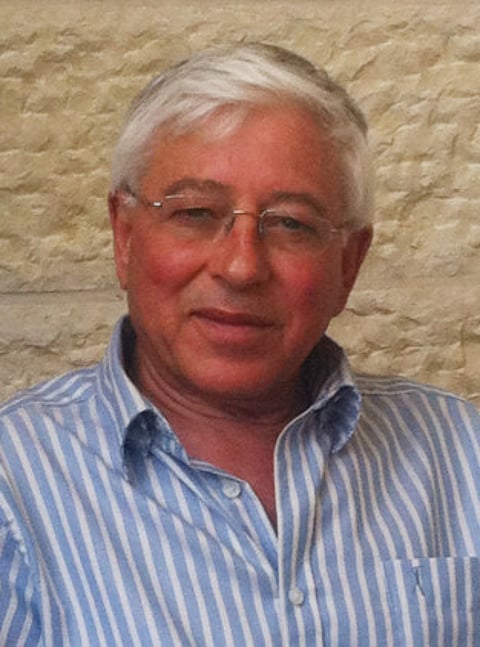‘Single state’ idea gaining gound in Palestine
A growing number of Palestinians believes the two-state solution is dead, wants single Jewish-Arab state

Ramallah: Many Palestinians have reached the conclusion that the two-state solution is dead, killed by the continuous Israeli colony expansion on lands sought by Palestinians for a future state.
In response, a group of Palestinians has launched the Popular Movement, advocating a single democratic state for Israelis and Palestinians in historic Palestine, between the River Jordan and the Mediterranean Sea. The movement and its ideas are quickly growing in appeal among the Palestinian public.
Speaking to Gulf News, Dr Radi Jaraei, a spokesman for the founding committee of the Popular Movement, said 30 of the 60 members of the committee had signed a document to launch the movement and that a conference would be held soon.
Marking the launch, Dr Jaraei spoke about the aims of the movement.
Why did you launch the movement at this particular time?
We are solidly convinced that the two-state formula is already dead and talks about it are just a waste of time that gives the Israelis more chance to make more gains and create more strategic facts on the ground. These partial solutions leave the conflict unsolved and indeed delay its resolution, since the issue of Palestinian refugees will not be solved with the two-state solution.
What options do Palestinians have at this moment?
Palestinians either have to accept to live within the Israeli racist and apartheid system or implement one democratic state in historic Palestine [in its pre-1948 boundaries]. Palestinians have tried all the [proposed] partial solutions and have reached a deadlock. Within the framework of this idea, solutions for all issues between the two sides are possible, putting aside violence and bloodshed.
How do you expect Palestinians to live in a bi-national state?
Life in the bi-national state will be based on a ‘one man: one vote’ formula where parties can and will be formed on economic and political grounds putting aside all national, religious and all types of racist grounds. If we accept democracy, whoever leads the government in this bi-national state, either Mohammad [a Muslim] or Shlomo [a Jew], it makes no difference for the public.
After signing the founding document, what will be the next step?
The founding committee will launch several campaigns to introduce the idea to both the Palestinian and Israeli public. Subcommittees have already been set up to spread the idea in the Palestinian cities, refugee camps in the Palestinian territories and in the diaspora. The movement closely coordinates with groups in Yafa and Haifa in the 1948 areas [that fall under the Israeli state] to reach the Israeli public. The movement coordinates with international groups in the US and Europe which believe in the idea of a bi-national state, where an international conference to launch the movement will be held.
Do you see any kind of Israeli support for the idea?
The idea has been there for the past two years, and it has spread among Israelis, especially among Jewish groups that oppose Zionism. Our founding document has been translated into Hebrew and will be published shortly to enable the Israeli public to read it.
The Zionist movements have planted racism in the Israeli society for more than 60 years. We need to show both Arabs and Israelis the possible gains in the event this democratic state is created.
What do you think the international community’s stance on this would be?
Our movement stands for democracy, equality and justice and this movement in the eyes of the international community is treated as the civilised face of the conflict, whereas Israel stands for the racist and apartheid face of the conflict. What is right is proven by logic, not by force.
Do you think this idea would be easily marketed and passed to the Palestinian public?
I challenge a single Palestinian to come up with a new strategy that is capable of solving all the aspects of the conflict, especially when the Zionist movements refuse the other. I have no doubt that once they understand it, the Palestinian public will strongly support the idea by at least 90 per cent.
Can this idea be confronted by the Palestinian National Authority (PNA) which is ruling the territory?
The PNA has reached a similar solid conclusion that Israel is not interested in giving up a single centimetre in the West Bank or occupied Jerusalem. Israeli colony construction has left no chance whatsoever for the creation of a contiguous and viable Palestinian state. This is a fact that can easily be seen on the ground. The PNA is a self-rule authority which provides the Israeli occupation with free-of-charge services.
Israel has expressed deep opposition to a bi-national state. Do you think this would lead Israel to take more seriously the two-state solution?
Israel strictly rejects a bi-national state in historic Palestine, but works around the clock to create a bi-national state in 1967 areas (the West Bank and occupied East Jerusalem). They want a bi-national state within the 1967 borderline to legalise Israeli colonial activities. We cannot set up a state [in the pre-1967 borders] with the Israeli colonists. In addition, the Israelis themselves cannot return to the two states for two peoples formula as the Israeli government cannot evict more than 600,000 colonists from the Palestinian territories to create a Palestinian state.



